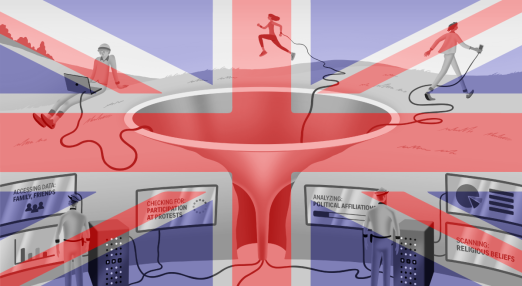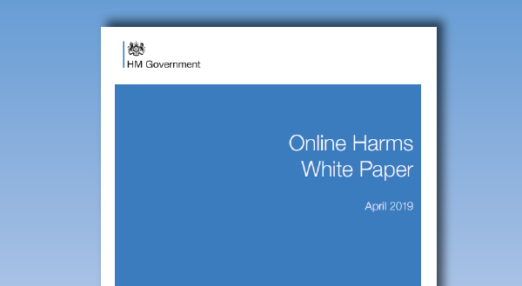united kingdom
Filter by...
-

The UK Data Reform Bill and the British Bill of Rights: a tragedy in two acts
The dust hasn’t settled since plans to undermine everyone’s right to data protection were announced, but the UK Government are at it again. Plans to ditch the Human Rights Act in the UK were just unveiled, in a combined effort to steamroll the rule of law and the freedoms we have always taken for granted. EDRi member Open Rights Group explains how the impact of this constitutional butchery reverberates in data protection, and why both the Data Reform Bill and the Bill of Rights follow a common thread.
Read more
-

The Online Safety Bill: punishing victims
The government has today announced two new regressive and unworkable additions to the Online Safety Bill. With each new announcement, the Bill demonstrates itself to make the online world less safe for the people it claims to protect, particularly LGBTQ+, survivors of abuse and ethnic minorities.
Read more
-

UK: Online Harms Strategy must “design in” fundamental rights
After months of waiting and speculation, the United Kingdom government Department for Digital, Culture, Media and Sport (DCMS) has finally published its White Paper on Online Harms – now appearing as a joint publication with the Home Office. The expected duty of care proposal is present, but substantive detail on what this actually means remains […]
Read more
-

New UK counter-terrorism law limits online freedoms
The Counter-Terrorism and Border Security Act 2019 became law in the United Kingdom (UK) in February, after passing through UK parliament with less debate than many had hoped, while Brexit dominated the political agenda. The new law is problematic in many ways, including the way in which it limits freedom of expression and access to […]
Read more
-

ECtHR gives a half-hearted victory against UK mass surveillance
On 13 September 2018, the European Court of Human Rights (ECtHR) delivered its ruling on the case brought by EDRi members Privacy International, Open Rights Group and other NGOs against the United Kingdom. The Court found several violations of the European Convention on Human Rights in three UK mass surveillance programmes. The Court’s judgment is […]
Read more
-

UK counter-terrorism law would restrict freedom of expression
Freedom of expression campaigners, human rights groups and legal experts are raising concerns that proposed new counter-terrorism legislation in the United Kingdom would restrict freedom of expression and limit access to information online.
Read more
-

Control of sorts over personal data for UK healthcare patients
NHS Digital, the provider of data and IT systems for the National Health Service (NHS) in the United Kingdom, has announced plans to roll out a new system by March 2018 as part of the national data opt-out. This is intended to allow patients to choose whether or not their personal identifiable data is used […]
Read more
-

Internet clampdown – convenient distraction from political turmoil?
There was unforeseen result in the United Kingdom general election. The Conservative Party was expected to increase their majority in government. However, it failed to achieve a majority and was forced to seek an alliance with the controversial Democratic Unionist Party (DUP) in order to form a government.
Read more
-

UK government pushes for companies to weaken encryption
The terrorist attack in Manchester on 22 May has led to a relaunch of the encryption debate in the UK. In December 2016, the UK parliament passed the Investigatory Powers Act. This wide-ranging surveillance law gives government ministers the power to issue Technical Capability Notices (TCNs), which can force companies to modify their products.These powers could […]
Read more
-

UK Draft Investigatory Powers Bill: Missed opportunity
The UK Government has published a draft of the long-awaited Investigatory Powers Bill. Since the Snowden revelations, civil liberty groups have been calling for a new law that would restrain the UK intelligence and law enforcement agencies. The UK government, however, has been calling for increased surveillance powers since the failure of the draft Communications […]
Read more
-

UK format shifting and parody copyright laws come into force
On 1 October 2014, new copyright regulations adding exceptions for personal copying, parody, and quotation came into force in the UK. The personal copying exception allows copying of purchased media for private use. This includes format shifting and backups. The exception doesn’t cover making copies for friends, family or making copies of media you do […]
Read more
-
Torrenz.eu suspended, but restored in absence of court order
Torrentz.eu, one of the most popular search engines for file-sharing websites, was taken offline on for linking to contents that infringe copyright. The site was taken down by the Poland-based registrar of its domain on 26 May 2014, after it had received a request from by the Police Intellectual Property Crime Unit (PIPCU) in the […]
Read more
